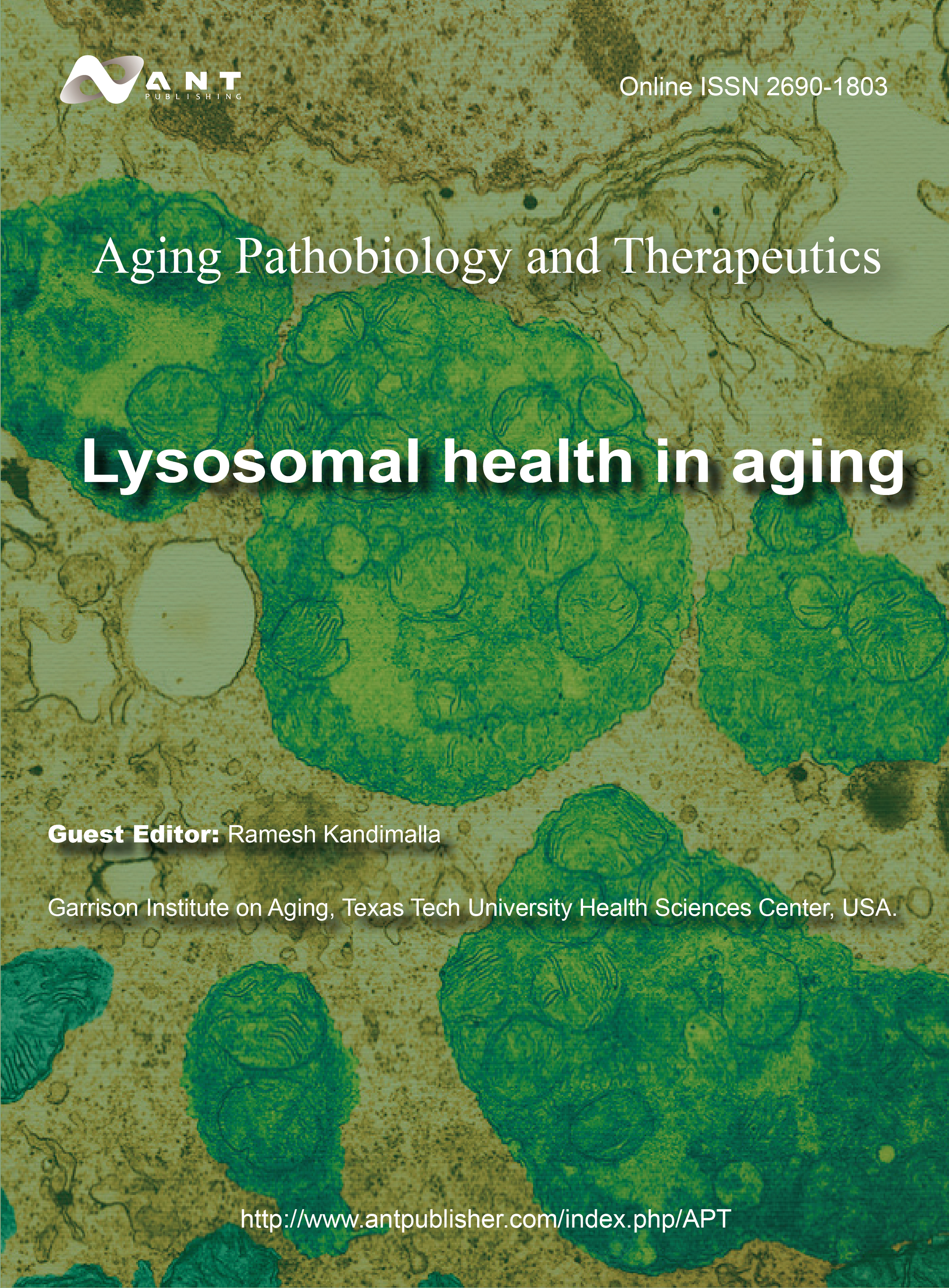Posted On 2023-11-01
 |
Guest Editor: Ramesh KandimallaGarrison Institute on Aging, Texas Tech University Health Sciences Center, USA.Email: ramesh.kandimalla@gmail.comWebsite: https://scholar.google.co.in/citations?user=NsLHqJcAAAAJ&hl=en |
 |
Dear Colleagues,
Lysosomal health becomes increasingly important for general cellular function as people age, impacting the aging process. Lysosomes, also known as the recycling centers of the cell, are essential for breaking down and recycling damaged organelles, macromolecules, and cell waste. Preserving proper lysosomal activity is crucial for maintaining cellular homeostasis and preventing the buildup of cellular debris, a characteristic feature of aging.
The process by which cells dispose of broken or unnecessary components, known as autophagy, declines with age and is a major factor in lysosomal health. Lysosomes are responsible for breaking down cellular material supplied to them through autophagic processes, illustrating the close relationship between autophagy and lysosomal activity. As we age, autophagic activity gradually decreases, impairing lysosomal breakdown and causing debris to accumulate inside our cells.
Age-related illnesses, such as neurodegenerative diseases, are largely caused by lysosomal dysfunction. Lysosomal failure in neurons can lead to the accumulation of protein aggregates, contributing to diseases like Alzheimer's with beta-amyloid plaques. Deficits in lysosomal function are also connected to diseases like metabolic disorders, osteoarthritis, and cardiovascular diseases.
Lifestyle choices, such as regular exercise and a well-balanced diet rich in minerals and antioxidants, are critical for maintaining lysosomal health as we age. It has been demonstrated that exercise preserves lysosomal function and increases autophagy. Furthermore, a few dietary strategies, including intermittent fasting and calorie restriction, may promote autophagy and enhance lysosomal health in general.
Developing strategies and therapies targeted at encouraging healthy aging and preventing age-related disorders requires an understanding of and attention to lysosomal health in aging. Studies in this area are revealing new information about the complex connection between lysosomal function and aging, potentially leading to tailored therapies to improve cellular health in the senior population.
Manuscript Submission Information
Manuscripts should be submitted online at www.antpublisher.com through the online submission system. Once you are registered, click here to go to the submission form. Manuscripts can be submitted until the deadline. All papers will be peer-reviewed. Accepted papers will be published continuously in the journal (as soon as accepted) and will be listed together on the special issue website. Research articles, Review articles as well as Therapeutic Brief are invited. For planned papers, a title and short abstract (about 100 words) can be sent to the Editorial Office for announcement on this website.
Submitted manuscripts should not have been published previously, nor be under consideration for publication elsewhere (except conference proceedings papers). All manuscripts are thoroughly refereed through a single-blind peer-review process. A guide for authors and other relevant information for submission of manuscripts is available on the Instructions for Authors page. APT is an international peer-reviewed open access quarterly journal published by ANT.
Please visit the Instructions for Authors page before submitting a manuscript. Considering limited grants for some researchers, Dr. Xiang Xie and the editorial office made the decision that Article Processing Charges will be fully exempted, which means that there are NOT any manuscript processing or publication fees for your article once accepted after standard peer-review.
Submission Deadline
November 30th, 2024
Participants
Contacts
Alan Zhou, Assistant Editor, apt_alanzhou@antpublisher.com